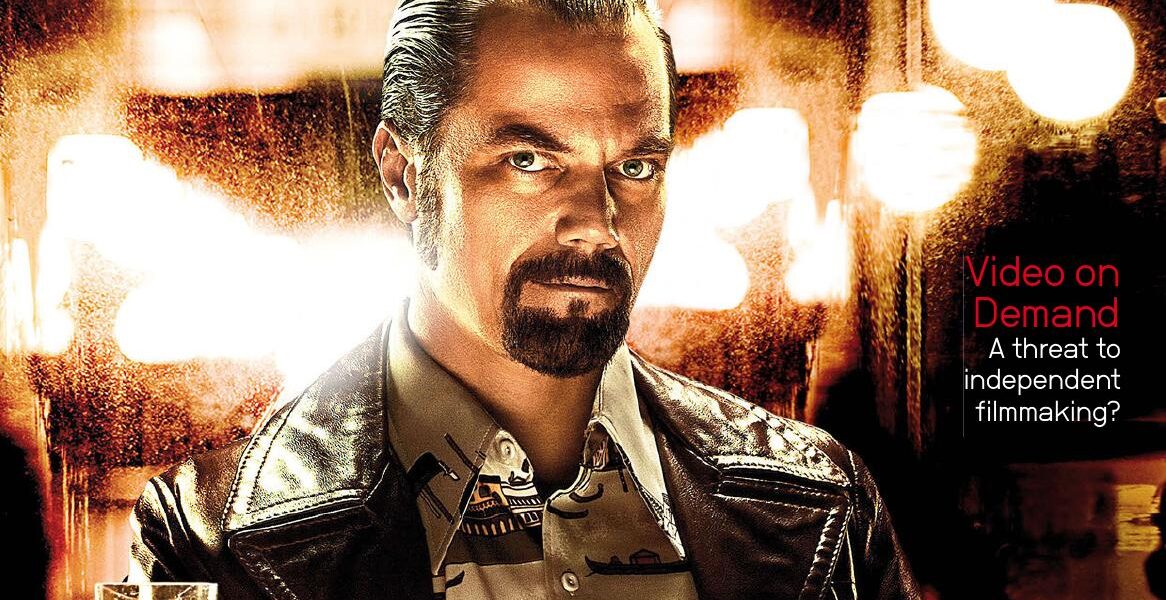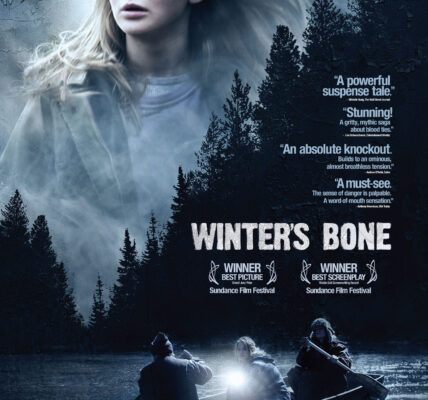Christine Langan, head of BBC Films, reveals why investing in British films may be challenging but can bring financial and creative rewards.
As creative director of BBC Films, Christine Langan is one of the most important figures in British filmmaking. We spoke to her about the corporation’s involvement with Cannes favourite We Need to Talk About Kevin—Lynne Ramsay’s adaptation of Lionel Shriver’s novel about the perpetrator of a high-school shooting—as well as the essential role the BBC plays in the UK industry.
What appealed to BBC Films about We Need to Talk About Kevin?
We had an ongoing relationship [with Lynne], and a huge admiration and respect for her work. I also think it’s a fabulous novel; very bold, very provocative and thoughtful. It seemed like that sort of film that not everybody would be prepared to approach; it wasn’t the most obvious commercial property but it had a lot of appeal. That’s exactly where we like to pitch ourselves, in the territory where more commercial entities might find things too challenging.
It’s taken around five years to bring it to the screen. Why was it such a long process?
The whole landscape of film finance changed during the time that we were trying to set the film up, and we were caught up in that. I think it was a little more propitious when we started out, and there were many more American speciality divisions. In the interim they fell by the wayside.
Obviously BBC Films doesn’t exclusively fund production, otherwise we would make one film a year; in fact we’re making about eight to ten. And anyone making an independent film in the UK is going to be looking at the US sale as either intrinsic to the production budget or the main part of the upside. We were led to believe that we had backing from the US, but it fell away. In its wake, we thought we had a very good lead with some private equity funds but they couldn’t make the numbers work. So in the end we figured we would have to dramatically cut the budget, and we went from looking at around a $10—12m budget to about half that.
It was obviously a big challenge for Lynne, because she was then charged with taking her script away and seeing if she could reduce it in terms of numbers of locations, characters and beats. In actual fact, that was a turning point, because I think it would have been perfectly legitimate for her to say, ‘This isn’t the film I set out to make,’ and possibly abandon it. Actually she went at it as a real creative challenge, and the script that came back was very visual, very pared down and very Lynne. It was, strangely, closer to the novel than perhaps any other version had been in spirit, if not literally. It’s a tough one, because I think Lynne would still think that she could have done with more money, even though she did brilliantly with what she had. But, crudely speaking, it was necessity being the mother of invention; it was that moment that really clarified everything.
Do you think the book’s subject matter was one reason why US investors shied away from it?
I think the things that are a little edgy about it were the things that attracted them to it but, equally, if you were in a conservative mood those would be the things that would make you think ‘we can probably make a safer investment elsewhere’. I think if you look around now, there really isn’t that much going on comparatively in the independent film sector. Activity has ground down and the tent-pole releases in the US are very conservative; it’s all about franchise releases and branded goods.
We know it’s difficult to get things up and running in that climate, but equally the fact that it makes what we specialise in more precious. I think there’s still very much an appetite for provocative drama.
So an important part of the BBC Films remit is to help fund these films that otherwise may fall by the wayside?
It’s a full service. There’s no point developing stuff in a vacuum. We have a big development slate, and we are also developing our own projects in tandem with producers which is really good but, I think, indicative of the fact that there’s less around.
It’s very important to not just help the producers with development funding and editorial steer, but also the nuts and bolts of finance and getting something up and running. We look upon ourselves as a resource for British independent filmmakers; we are an ally, we are a partner. If you’re an independent producer you may be making, on average, one film every two years. Because we’re a volume producer, there are all sorts of situations that we will have encountered, so we can give good advice.
Do you have a set criteria for the projects BBC Films gets involved in, and does there have to be a guarantee of some financial return?
It’s not a commercial remit, but we are commercially conscious. As far as in British cinema, obviously, the commercial fate of a move is also descriptive of its popularity. Ultimately, we are serving up these films to the BBC television screen, and our license-fee payers. So I really want to provide value for money for them, as well as access to films that might not otherwise have been made, or they might not get access to in quite the same way.
An Education, for example, is a film that might well have struggled to get made. In the early stages of its development, it wasn’t seen as being very commercial by anybody. Obviously Nick Hornby’s voice is very special, in helping the producers to drive that project forward, and we gained partners as we went. It was something we were delivering to the viewers quite quickly, and something the BBC and the public can feel proud of as being properly British entertainment that has global appeal.
But although people talk about the ‘resurgence’ of British film, our output is still judged in direct comparison to the USA…
Yes, we are slaves to the fact that we speak the same language. If you’re on your way to the cinema on a Friday night, you have many options and British films have to compete with the best of Hollywood. It’s very difficult to build up an indigenous, independent film culture. But I think we have one; we have fantastic filmmakers and an attitude in the UK that’s tangible. But getting people out there to pay at the cinema to go to see those films is tough.
So we shouldn’t be striving to match the Hollywood business model, we should be forging our own path?
Yes. For us the big issue is state funding. It’s been in the news a lot lately with the abolition of the UK Film Council; obviously that money is ring-fenced, and now the BFI is taking care of it, but there’s always this debate about whether the British film industry can be made sustainable. I think state funding greases the wheels, and is incredibly valuable in the early stages. There may not be a need to take that money away, to take those stabilisers off the bike. If you keep the stabilisers on the bike you may still go into profit; it may still be good for the creative economy and for the economy beyond. The inward investment is great. Something like The King’s Speech received a little bit of funding from the UKFC, but look what it’s done besides. We have to invest in our creative community, because it’s very special and the prizes are there. We have to do it judiciously and it’s complicated.
I think people misinterpret the funding of film that happens through the broadcaster or through the lottery. It’s not a handout. You can generally justify the spend, and it comes back in some shape or form—either directly as repayment on an investment or the license to broadcast. It’s not like the British public are shelling out in a charitable fashion; there is a very strong logic to it.
Do you think The King’s Speech has paved the way for a new dawn in British filmmaking, or will it remain a tough slog?
I think it’s going to be really challenging, and we have to be increasingly genius in working out what we have to offer. We do have a profoundly interesting past, but obviously we don’t want to be just exclusively tied up with that. The King’s Speech is interesting because, in very crude terms, it says that grown-up narratives about British period movies can still make a lot of money. Lots of distributors and investors of different shapes were saying, before that happened, ‘Oh we can’t make those films any more. If it doesn’t work for a 16-year-old boy then we don’t want it.’
The other thing that was really interesting about the film was the demographic of the cinemagoer. It subverted all the more recent messages that are being sent out about who goes to the cinema. Once you hit that critical mass all sorts of people were going to the cinema, of different groupings. That’s fantastic, if you can tap into different audiences and make cinema a more diverse experience. www.bbc.co.uk/bbcfilms












